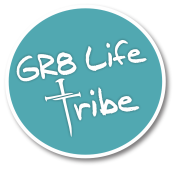
MODULE 1
What Is Health?
For many people, health means getting rid of symptoms or being able to quickly recover and bounce back from disease. While part of being healthy is being free of physical illness, it’s actually so much more than that.
What Is Whole-Person Health?
Whole-person health can be defined as experiencing optimal physical, mental, emotional, and spiritual well-being. At its core, whole-person health is self-care. It’s recognizing that your body has needs and taking action to meet those needs. It requires making choices that help you function optimally and thrive across different areas of life.
Bio-Individuality
It’s common practice to try a new diet, fitness routine, or other health approach because you’ve heard it works for other people. However, that doesn’t always work well. Why? Because we’re all different. Whole-person health is one size fits none.

Bio-Individuality
is the idea that everyone has unique needs – what works for one person won’t necessarily work for another. While there are healthy basics that support many people, health looks different for every person and we all have our own experiences with it. The other part of bio-individuality is that your unique circumstances and needs change over time. Therefore, it’s important to continually adapt your approaches to health in order to adapt to those changes.
Multidimensional Health

Multidimensional
Whole-person health is more than the food you eat. It’s multidimensional. We focus on four pillars of multidimensional health: physical, mental, emotional, and spiritual. These four aspects of health are interconnected, and considering them all together, no matter which area of health you’re currently focusing on, will help you find approaches that increase your overall quality of life.
Click on each tab below —
 Physical health is the condition of your body and includes everything from nutrition and the absence of disease to genetics and your fitness level. This may be the first thing that comes to mind when you think of health, and while it’s important, it’s only one aspect of whole-person health.
Physical health is the condition of your body and includes everything from nutrition and the absence of disease to genetics and your fitness level. This may be the first thing that comes to mind when you think of health, and while it’s important, it’s only one aspect of whole-person health.
It also encompasses the strategies that support you in taking care of yourself, which may include eating nutrient-dense foods, staying hydrated, getting adequate rest and sleep, breathing deeply, and engaging in regular exercise and movement.
 Mental health is the condition of your mind – from your mind-set and the way you speak to yourself to your relationship with stress and even your ability to cope with challenges.
Mental health is the condition of your mind – from your mind-set and the way you speak to yourself to your relationship with stress and even your ability to cope with challenges.
It also encompasses the strategies that support you in taking care of yourself, which may include practicing gratitude, choosing to learn from obstacles, reframing stories that keep you stuck, allowing space for emotions, and looking at the bigger picture.
Mental health is intricately linked with emotional health as it means being able to be present with your feelings and accept them for what they are as well as utilizing tools and strategies to work with your emotions rather than ignoring or fighting against them.
 Emotional health is the condition of your emotions and includes your relationship with yourself and others as well as your ability to tune in to, accept, and manage feelings through challenges and change.
Emotional health is the condition of your emotions and includes your relationship with yourself and others as well as your ability to tune in to, accept, and manage feelings through challenges and change.
It also encompasses the strategies that support you in taking care of yourself, which may include expressing your feelings in meaningful ways, practicing mindfulness, creating space for personal interests, and surrounding yourself with people who support you. Like other areas of health, it’s a muscle you strengthen through experiences over time.
 Spiritual health is the condition of your spirit and is a broad concept with opportunity for many perspectives. Though it’s often linked with a sense of connection to something greater than yourself, spiritual health also includes how your personal identity helps fulfill your purpose. Having spiritual awareness can help you find meaning and individual purpose in your life and can help you live in a way that reflects your values, morals, and beliefs.
Spiritual health is the condition of your spirit and is a broad concept with opportunity for many perspectives. Though it’s often linked with a sense of connection to something greater than yourself, spiritual health also includes how your personal identity helps fulfill your purpose. Having spiritual awareness can help you find meaning and individual purpose in your life and can help you live in a way that reflects your values, morals, and beliefs.
Spiritual health also encompasses the strategies that support you in taking care of yourself, which may include being part of a community with others who share similar beliefs, serving others, aligning your values with your actions, and being open to new ideas and perspectives as you explore your unique path.
Sustainable Shifts
Whole-person health is an ongoing journey. While short-term solutions may provide temporary results and can even help instill new habits, they often require making many changes at once to get these results. This isn’t usually sustainable, or enjoyable, and can leave you unsure about which elements are really working for you.

Sustainable Shifts
Making sustainable shifts means experimenting with one new thing at a time and choosing to make changes that feel small but doable long-term. This makes it easier to implement new practices and determine if they support your bio-individual needs. The great thing about sustainable shifts is that small changes add up to big results over time.
